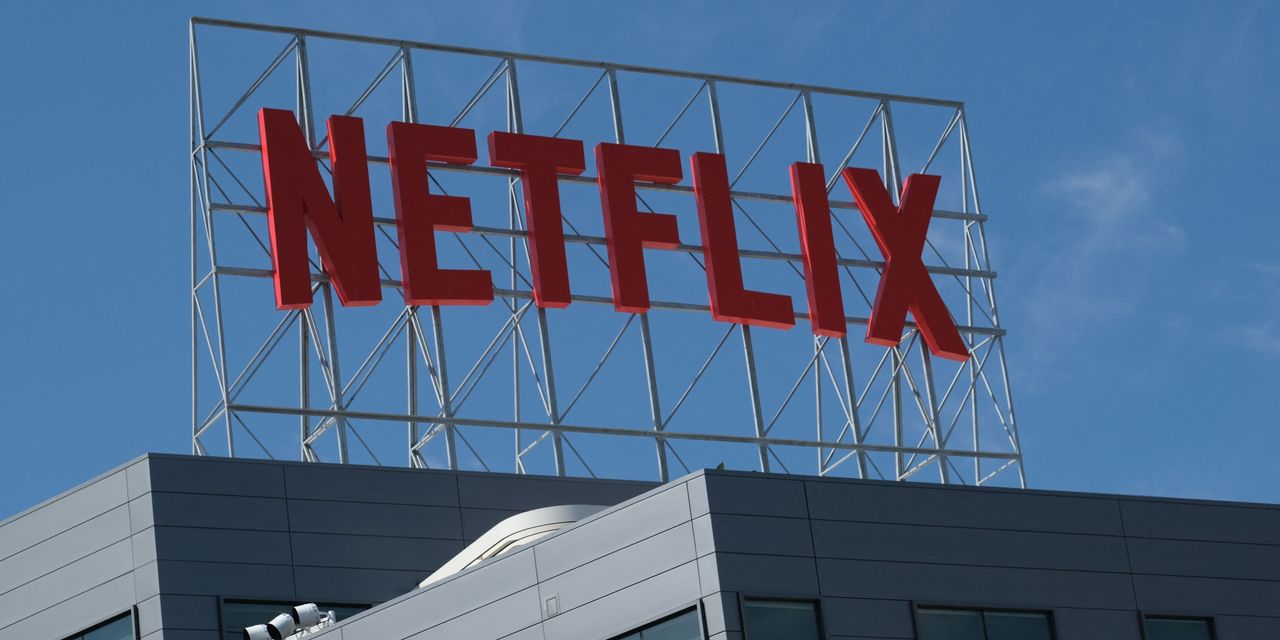William Ackman, the billionaire investor whose fund bought more than 3 million shares of Netflix in January, said Wednesday the fund sold its stake at a loss. In a letter to investors, Mr. Ackman said Netflix would cut the Pershing Square fund’s returns by four percentage points. That means a loss of around 400 million dollars.
In January, Mr. Ackman said Netflix had an “attractive valuation”; On Wednesday, he wrote, “We have lost confidence in our ability to predict the Company’s future prospects.”
Shares lost more than a third of their value, ending down $122.42 to $226.19. The stock was the S&P 500’s worst performer for the day. Investors had expected the company to add new users during the quarter. Instead, Netflix said it ended the first three months of the year with 200,000 fewer subscribers than in the fourth quarter and expected to lose 2 million subscribers worldwide in the current quarter.
Several other streaming stocks fell on Wednesday. Paramount Global closed down $3.12, or 8.6%, to $33.16 and Warner Bros. Discovery Inc. was down $1.48, or 6%, to $23.01. Walt Disney Co. was down $7.33, or 5.6%, at $124.57, while Spotify Technology SA was down $14.92, or 11%, at $122.49.
Subscribe to Newsletter
markets
A pre-market primer full of news, trends and ideas. Plus current market data.
Netflix’s stock decline marked its largest one-day percentage drop since Oct. 15, 2004, when the company fell 41% after announcing it would cut subscription fees and postpone planned international expansion. The company’s market cap was slashed by $54.3 billion, its largest one-day market cap drop on record.
It’s the stock’s second fall this year. In January, Netflix shares plunged more than 20% as the company said it expects to add a much smaller number of subscribers than it did a year earlier. The stock is down 62% this year including Wednesday’s drop.
Users flocked to Netflix in the early months of the coronavirus pandemic, as lockdowns and measures to contain the virus kept people at home and pushed the company’s share price to record highs. The easing of restrictions and an increase in competition from other streaming services over the past year have hampered Netflix’s growth.
“No one expected Netflix to announce that they were losing subscribers. They expected subscriptions to drop, but to see Netflix losing subscribers is a big deal,” said Ipek Ozkardeskaya, senior analyst at Swissquote Bank, an online brokerage.
More than 100 million Netflix shares traded on Wednesday, according to Dow Jones Market Data, the first time Netflix had surpassed that milestone since 2015. Some retailers appeared to be buying the drop: the company was by far the top-selling stock on Fidelity’s brokerage platform, according to the company’s website. Buy orders for the stock far outpaced the number of sell orders tied to the stock.
Meanwhile, options trading volume tied to the stock exploded on Wednesday at about 15 times the activity on a typical day, according to data from Cboe Global Markets. Many traders appeared to be bracing for a sharper drop in stocks or benefiting from a prolonged downturn. Put options, which would pay out if stocks fall to $200 or $190, were among the most commonly traded options. Ahead of the earnings report, call options, which would benefit if stocks went up, would be popular.
Traders paid around $2 billion for Netflix options, known as premiums, as of afternoon trade, exceeding spending on options tied to Amazon.com Inc. or an exchange-traded fund tied to the S&P 500, according to shift search by Vesica Technologies.
Netflix is one of the original FANG stocks, a quartet of big internet companies that reflect the dominance of tech stocks in U.S. markets. The others are Facebook-owner Meta Platforms Inc., Amazon, and Google-owner Alphabet Inc. Some analysts are also counting Apple Inc. Cracks have appeared in popular trading this year, and analysts have said they are changing their approach to tech- Heavyweights have reconsidered after some disappointing earnings.
Netflix said it was considering offering a lower-priced ad-supported version of the platform to grow its subscriber base, a shift for a company that has sold itself as an ad-free haven for its members since inception. The company had increased its subscription fee earlier this year.
The growing number of streaming options has made consumers more price sensitive. Netflix is among the few major streaming services yet to offer a cheaper, ad-supported option. Disney’s Hulu has long done so, while Warner Bros. Discovery’s HBO Max and Disney+ have also pushed into ad-supported streaming.
The move adds to investors’ fears that rising prices will limit consumer spending on non-essential goods and services.
More Netflix viewers saw dubbed versions of South Korean drama Squid Game than subtitled versions. WSJ caught up with one of the show’s English-speaking voice actors to see how dubbing foreign content is fueling the growth of the streaming giant. Photo illustration: Sharon Shi
“People ask, ‘Is it worth it?'” said Ms. Ozkardeskaya. “As prices go up, the value threshold gets pulled higher, and that pushes people to exit.”
The company’s results also caught the attention of Tesla CEO Elon Musk, who has made a $43 billion bid to buy Twitter Inc.
“The wake-mind virus is making Netflix unwatchable,” he said tweeted Tuesday night in response to a news article about the subscriber losses.
Write to Caitlin Ostroff at [email protected] and Gunjan Banerji at [email protected]
Copyright ©2022 Dow Jones & Company, Inc. All rights reserved. 87990cbe856818d5eddac44c7b1cdeb8

